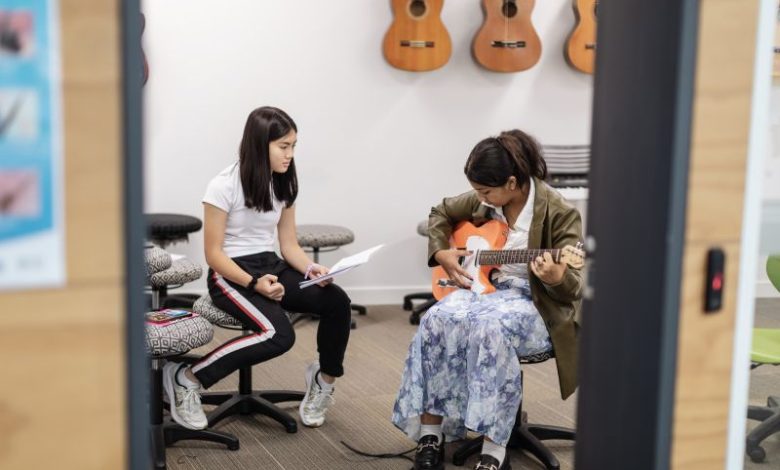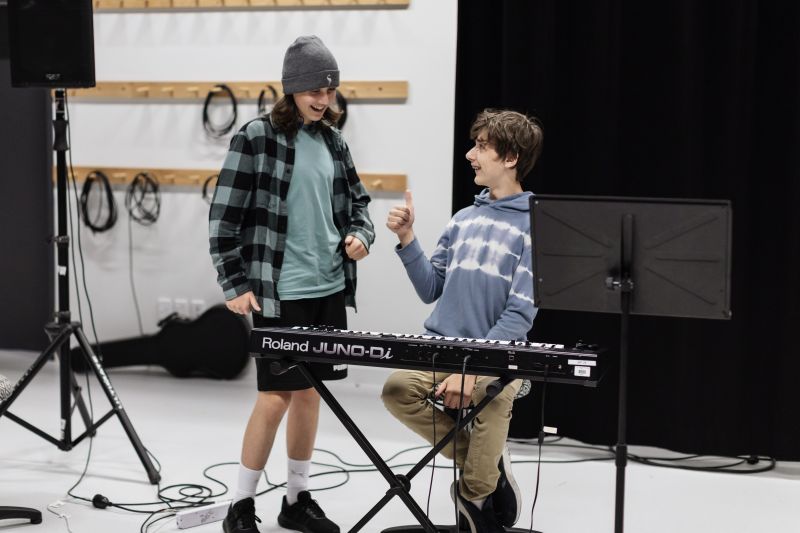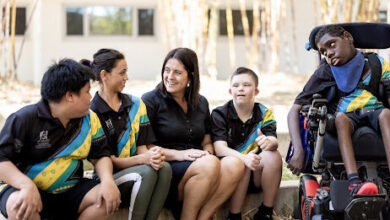
The Musicians Mentoring in Schools Programme, pioneered by Te Reo Reka O Aotearoa | The New Zealand Music Commission (NZMC), provides a transformative and adaptive learning experience for educators seeking to engage students in the world of music.
For more than a decade, Jeni Little has been an advocate of the programme. Her journey spans multiple schools, including Green Bay High School and, most recently, Hobsonville Point Secondary. She said that the programme has been flexible to her cohort’s changing needs, and each school’s resources.
Read the latest print edition of School News HERE
“One of the things I really liked about the scheme is you get to see the list of mentors, and you can request someone who fits either your kids’ needs or the way your music department is, which is really useful,” Little shared. “This level of customisation empowers educators to align mentoring experiences with their students’ requirements and the specific nuances of their music departments.”
A distinct benefit of the programme is its impact on students, and also its profound influence on teachers. “It’s as much for the teachers as the students, to be honest. It’s awesome to stand in a room and look over someone’s shoulder as they mentor the students,” Little said. “There is something to be said about the joy of making new connections and witnessing students thrive under expert guidance. This has a lasting impact on educators, breathing new energy into their teaching practices.”
The programme’s range extends beyond conventional music education, collaborating with teachers’ expertise, reinforcing existing knowledge and supporting their ongoing professional development. Little strategically selects mentors to complement her existing skills, ensuring a well-rounded music education for her students. Recent mentors, including Mazbou Q, MC Tali, and Jazmine Mary, exemplify the program’s commitment to representation and diversity.

Mazbou Q was selected specifically because Little wanted someone who would be a great role model for some of the young men in the music department. “I watched him take a couple of kids who were in danger of not getting any credits in NCEA and show them a couple of production techniques. Three of them ended up getting composition credits. If he hadn’t come through that probably wouldn’t have happened for them.
“I really wanted to make sure that young women could see themselves represented as well, so we had MC Tali come in. She very much attracted the sort of young woman who had a bit of a technical interest. She also did some really wonderful songwriting workshops which I’ve used again with my own classes, because they were really effective.
“Jazmine Mary supported young women to get songwriting credits just from that interaction and mentoring. Another outcome of this is one of these young women became quite technically savvy and became the go-to person in the music department when something wasn’t working. It was brilliant for her self-esteem.”
Mentors with technical expertise have played a pivotal role in introducing students to the intricacies of music production, a facet that wasn’t part of Little’s own education. The team at the Music Commission works closely with teachers to match the “right” mentor to the school. This strategic mentor selection significantly impacts students’ academic success. The ripple effect of mentorship, though, extends far beyond the immediate learning environment.
The Teacher Feedback Report reinforces the program’s holistic benefits, with teachers reporting improvements in students’ confidence, motivation, and cultural connection. The straightforward sign-up process and commendable communication from the Music Commission makes participation accessible for educators.
The programme prioritises lower decile schools, priority learners, and those located outside main urban centres. This aligns with the Music Commission’s commitment to fostering inclusivity and ensuring equitable access to transformative music education experiences.









